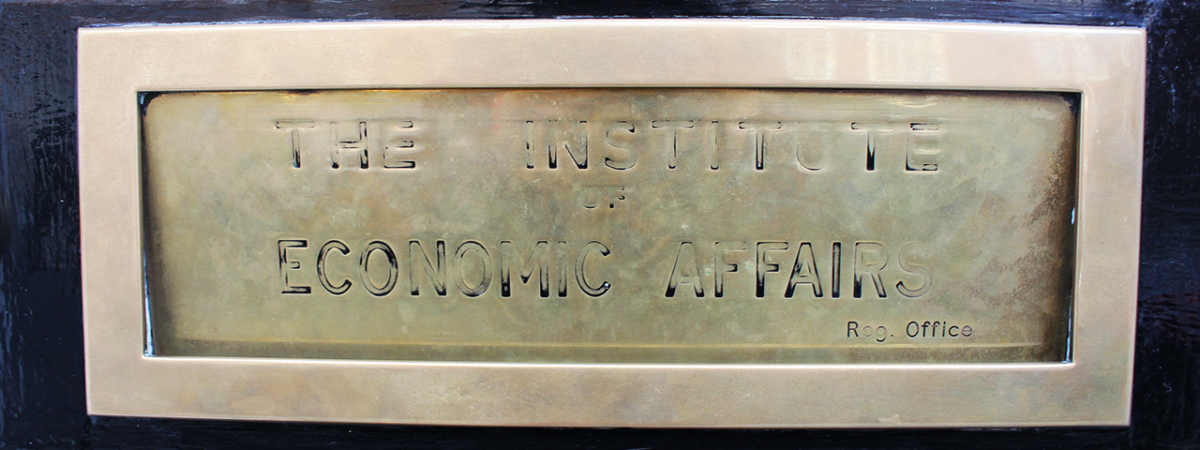The new state aid system is ad-hoc Mazzucatoism
SUGGESTED


Business Secretary Kwasi Kwarteng has been at pains to emphasise that ‘we will not return to the failed 1970s approach of the government trying to run the economy, picking winners or bailing out unsustainable companies’.
But that was never the wish of Tony Benn or the forgotten Eric Varley, who took over from Benn as Industry Secretary in the Labour government of the 1970s, either. Political pressures led both of them to subsidise businesses about which optimistic statements were made but which turned out to be no good. And, incidentally, these were not only dying businesses such as shipbuilding: they included investments in microelectronics and the emergent field of biotechnology. One historian reckons that 95% of National Enterprise Board disbursements were wasted.
Politicians always think it is going to be different this time. But I do not think the signs are good. Mr Kwarteng complains that the European Union was slow to approve subsidies, and tried to keep them to a minimum. But for me that was one of the positives of EU membership, a reluctance to allow national governments to subsidise national champions.
Nowhere in the BEIS press release or Mr Kwarteng’s interviews do we have a clear explanation of the nature of the market failures which require substantial new government intervention. At least those on the left who advocate an ‘entrepreneurial state’ have some sort of theory behind their rhetoric.
His junior minister, Paul Scully, says the new subsidy system will be ‘simple, nimble and based on common-sense principles – free from excessive red tape’. But maybe tight controls are not such a bad thing when public money is concerned. Business support during the pandemic has been pretty nimble, without long delays, but earlier this week the Public Accounts Committee reported high levels of fraud and error associated with the bounce-back loans scheme, with 35-60% of the loans unlikely ever to be repaid and the taxpayer in for a loss of up to £27 billion.
The BEIS press release says that the taxpayer will be protected by banning support to ‘ailing or insolvent’ enterprises where there is no credible restructuring plan. Yet this has always been the case in principle, surely? In practice, we can never see the future and disprove government belief that a business can be put back on its feet. Apparently this government still aims to support the survival of steelmaking in the UK, a case of hope over experience I fear.
The areas where subsidies may be appropriate, it seems, include Artificial Intelligence, ‘high- value’ manufacturing, life sciences and a range of services where Britain allegedly has an edge – which of course begs the question why the government needs to support them anyway. But Mr Kwarteng has also talked generally of a ‘green revolution’, which opens up the idea of subsidising far more activities, for example in agriculture, transport and logistics, which can be presented as decarbonising the country.
Additionally there is the obligatory reference to investments which contribute to the government’s nebulous, but politically potent, aspiration to ‘level up’ the country. All considered, it seems difficult to think of investments which could not be touted under one heading or another.
A novel feature of the new policy is that devolved administrations and local authorities will be ‘empowered for the first time to decide if they can issue subsidies by following UK-wide principles’. This opens up a whole new box of tricks. It is only too likely that the interpretation of these ‘UK-wide principles’ will differ between political parties and between the nations of the UK. This will be yet another source of contention in our Disunited Kingdom. If Nicola Sturgeon decides she wants to subsidise a new technique for battering Mars bars, or Sadiq Khan wants to try running buses on unicorn droppings, a refusal by the new Subsidy Advice Unit will not be taken kindly and we will hear yet more anti-government rhetoric and challenges through the courts.
No, I am not convinced that this new policy makes a great deal of sense as it stands. When the legislation comes before Parliament it will need very close scrutiny by our legislators.
1 thought on “The new state aid system is ad-hoc Mazzucatoism”
Comments are closed.






Hi Len
You are quite right but you don’t take account of Boris’s strategy of taking Labour’s ground to keep ahead in the polls. Emphasis of the cost to the taxpayer is an appropriate response.
All the best
Roger.